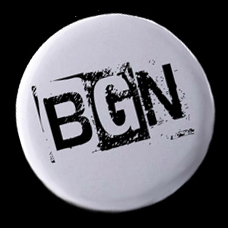 |
links | contact us |
|
|
Phillip Glass Symphony No. 1 "Low" and Symphony No 4. "Heroes" Ambient Orchestra, Evan Ziporyn conducting Kresge Auditorium, MIT January 29, 2016
The Ambient Orchestra voluntarily came together for one night (and a week of practice) to pay homage to David Bowie at MIT’s Kresge Auditorium this past Friday night. The modern, minimalist lines of the sold out space were sympathetic to the night's offerings: the Boston premieres of Phillip Glass’ Symphony No. 1 - Low andSymphony No. 4 - Heroes. The musicians donated the proceeds from the night to the Koch Institute Frontier Research Fund for Cancer. The orchestra was led by the esteemed composer, conductor and player and MIT professor Evan Ziporyn who wore a snazzy black leather cousin of Bowie's Earthling era union jack coat.
Symphonic renditions of rock music are, by definition, fraught with
danger. Think Trans-Siberian Orchestra or Rick
Wakeman's Journey to the Center of the Earth. Think really
bad Prog. The Glass “Low Symphony skirts this issue with skillful
use of the depth and range of the orchestra, with a minimalist modern
vocabulary that compliments the source material and with judicious use
of fragments of Bowie's and Eno's
original melodies. The result is neither esoteric nor pandering. The
opening trilled woodwinds, joined by the slowly moving violins, ease
you into the Subterraneans based first movement. The movement
builds momentum as its repetitive, subtlety shifting motifs fall together
and pull apart as they build to a blazing crescendo.
Symphony No. 4 “Heroes” is a more cinematic, episodic affair. This betrays its roots as music for a Twyla Tharp ballet. The pieces are compact. The melodic DNA generally more recognizable. This in no way diminishes the output. Low deserves its odd ball niche in the modern symphonic canon. “Heroes might be best suited for avant-garde night at the Pops. The first tune, Heroes, from Symphony No. 4 quickly gives lie to the DNA theory. Glass seems to purposefully steer clear of the grandeur of Bowie's melody, perhaps in an artful dodge of a potential sentimental bullet. Abdulmajid jumps up with a clatter of flamenco percussion and light, rippling gong. The horns hint at an Arabian melody with xylophone and triangle accents. Bowie and Iggy on a road trip to the Temple of 1001 Pleasant Dreams?
Sense of Doubt hits the melody hard and deep. The orchestra drags every bit of dread out of the bass and low horns and teases the resolution mercilessly with the theme and variation strings, woods and brass. Zyporin uses every dB of dynamic range. The melody returns to remind us why we are scared. Don't open that door. And, finally, the four note resolution. Sons of the Silent Age lets everyone catch their breath and gives the French horns and flutes a chance to shine. The strings that start Neuköln jar like sirens. The repetition of the main motif piles on the weight. What follows does little to lift the feeling of apprehension. That job falls to the jaunty V2 Schneider. The horns and strings are in lively conversation throughout and then they join forces with the percussion section in a mad rush to the end. Both of these symphonies sound great coming out of a nice pair of home audio speakers. Live, they sounded fantastic. Ziporyn's one-off encore arrangement of Let's Dance sent everyone home with a Mona Lisa smile.
|